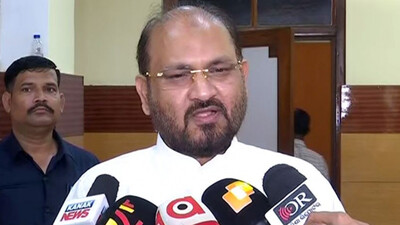Recommended Stories
The then Finance Minister Manmohan Singh had to "pronounce" liberalisation polices in 1991 as it was "inevitable" and "compulsory" as New Delhi had to pledge gold with Bank of England, Moily said. "But any of such (liberalisation) measures always should go along with other preparations," Moily told a seminar on "the future of corporates in India," organised by television channels ETV Kannada and ETV Urdu here on Monday night.
Since India had not put in place "that kind of a mechanism" along with the liberalisation policies, growth has happened without restrictions. While growth is good, it has many other components like inclusivity, regulations and it has to be sustainable, he said. "If you want that growth should be sustained, there is a process of governance ....the process of destroying anti-competitive forces. And growth will have to go (happen) along with many other regulatory practices," Moily said.
Noting that the Companies Act of 1956 is a "very old act," he said the country should have come out with a new act, replacing it altogether, much earlier. Now, the Companies Bill of 2011 is on the anvil. "Immediately after 1991, first thing we should have done is destroying the 1956 Act, come out with a new act. Then many of these problems (corporate frauds) you see today would not have been there," Moily argued.
Moily also pointed out that the Competition Act came only in 2009, while it should have come "long, long back". "We have not built that kind of mechanism (after 1991) to take care of vibrant growth in the corporate sector".
He said a Competition Policy would hopefully be cleared by the Union Cabinet by next month-end. This policy would boost job creation and GDP and tame inflation. He said a national corporate governance policy would be framed probably in six months after due consultations with all stake-holders. He also admitted there is no system to check corruption involving high offices. "Many a time we see corruption at high offices. There is no system to take care of (to deal with it)".
While even Pakistan has a public procurement law, India has approved a public procurement policy only recently, with a law which is going to come, despite the fact that public procurement by central government departments alone annually is to the tune of Rs 12 lakh crore, he said. Once the public procurement policy and law are in place, "75 per cent of the scope for corruption will disappear," Moily added.












